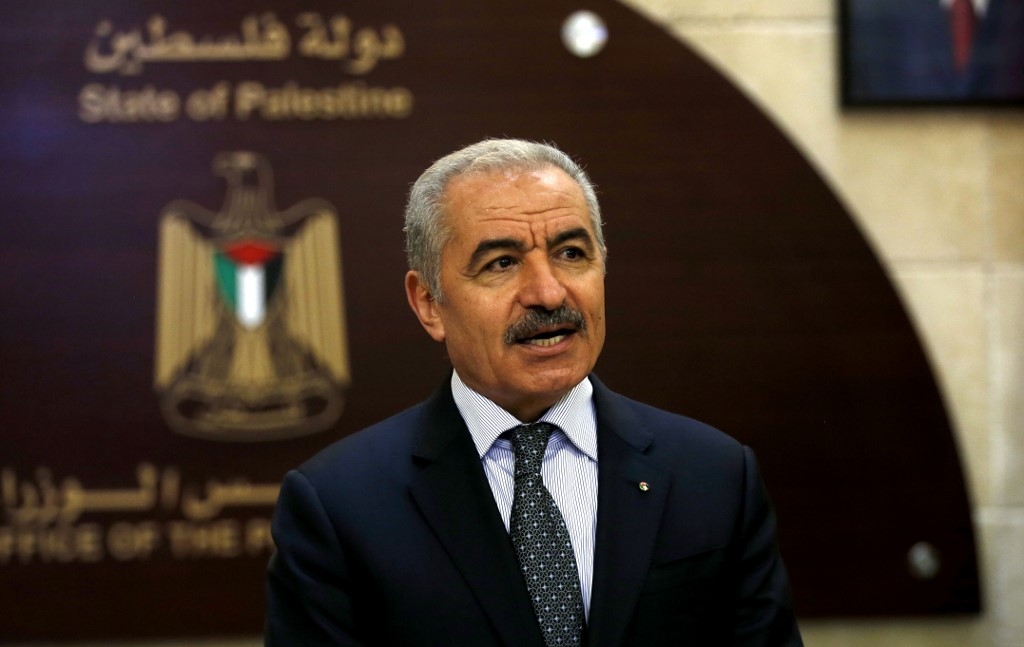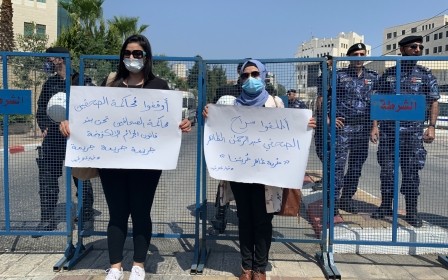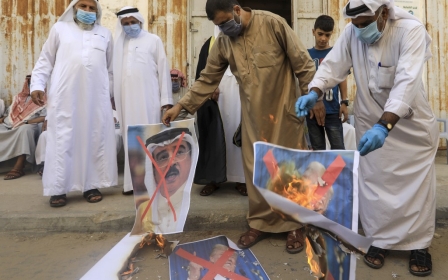Palestinian leaders to reconsider relations with Arab League

Palestinian Prime Minister Mohammed Ishtayeh said on Monday that his government will present a recommendation to President Mahmoud Abbas to reconsider relations with the Arab League, after two of the body's members - the United Arab Emirates (UAE) and Bahrain - agreed to normalise relations with Israel.
"The Arab League has become a symbol of the Arab inaction," Ishtayeh said during his weekly cabinet meeting.
Last week, an Arab League ministerial meeting failed to adopt a Palestinian draft condemning the UAE-Israel normalisation agreement announced last month.
Bahrain specifically objected to the wording of the Palestinian draft.
The Gulf country then announced it would follow in Abu Dhabi's footsteps to become the fourth Arab country to establish full diplomatic ties with Israel, after the UAE, Egypt (1979) and Jordan (1994).
New MEE newsletter: Jerusalem Dispatch
Sign up to get the latest insights and analysis on Israel-Palestine, alongside Turkey Unpacked and other MEE newsletters
Unlike Egypt and Jordan, Bahrain and the UAE share no borders with Israel and have never fought wars against it.
On Tuesday, the White House will host the signing ceremony of the normalisation agreements, which will be attended by US President Donald Trump, Israeli Prime Minister Benjamin Netanyahu, UAE Foreign Minister Abdullah bin Zayed and Bahraini Foreign Minister Abdullatif al-Zayani.
Ishtayeh said "Tuesday will be a black day in the history of the Arab nations and a defeat of the Arab League institution".
The Palestine Liberation Organisation (PLO) has condemned the Bahrain-Israel normalisation deal as a "betrayal of the Palestinian cause".
The agreement was another "stab in the back of the Palestinian cause and the Palestinian people", Ahmad Majdalani, social affairs minister in the occupied West Bank-based Palestinian Authority, said on Friday.
Hamas, which controls the Gaza Strip, said the deal was an "aggression" that dealt "serious prejudice" to the Palestinian cause.
In contrast to reaction in the UAE, Bahrainis had been vocally critical after the deal was announced, making "Bahrainis against normalisation" the most popular topic on social media.
The Palestinian leadership has remained firm in its call for an independent state based on the de facto borders before the 1967 war in which Israel occupied the West Bank and the Gaza Strip and annexed East Jerusalem.
Arab countries had long said normalisation with Israel would come only after its withdrawal from illegally occupied land, a just solution for Palestinian refugees and a settlement that leads to the establishment of a viable, independent Palestinian state.
While the UAE has said the normalisation deal was made as a way of halting Israeli annexation of the West Bank, Netanyahu has said that annexation remains on the table.
Middle East Eye delivers independent and unrivalled coverage and analysis of the Middle East, North Africa and beyond. To learn more about republishing this content and the associated fees, please fill out this form. More about MEE can be found here.





